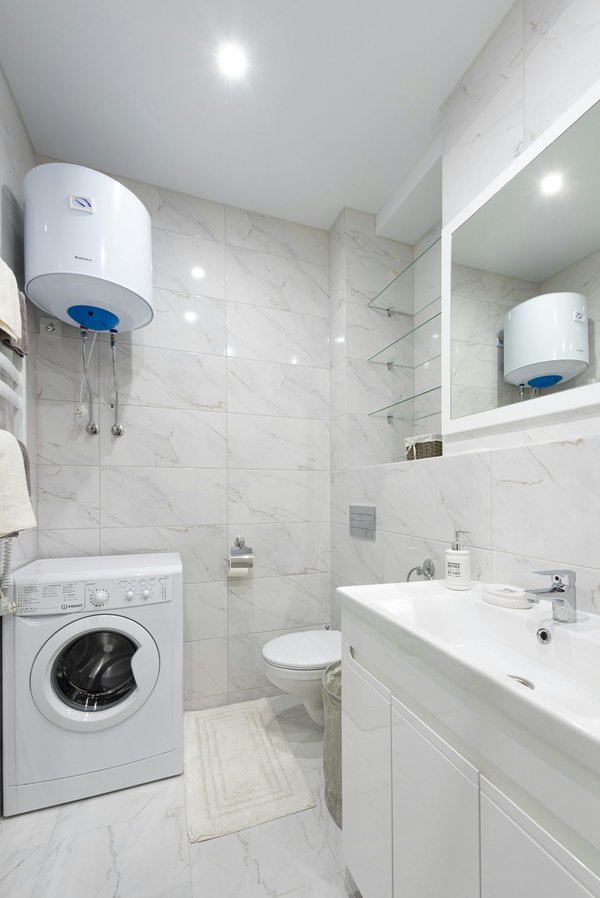Selecting the right water heater means balancing capacity, energy efficiency, and installation needs. Understanding key differences—like tankless versus storage models—can dramatically affect performance and costs. This guide reveals how modern features, from digital controls to compact designs, help tailor solutions for various households and commercial spaces, ensuring reliable hot water without overspending or compromising space.
Essential Facts and Key Considerations for Water Heating Systems
Understanding the basics of water heaters and “heater water” terminology is crucial for both home and business owners. Systems like Atlantic Comfort provide electric, solar, and heat pump water heaters suited to diverse needs. Water heaters are commonly found in kitchens, bathrooms, or commercial spaces—supplying hot water for daily tasks, cleaning, or even central heating.
Choosing the right type depends on intended use and setup. Storage water heaters keep a reservoir of hot water, ideal for sustained use. Tankless (instantaneous) models heat water only when needed, saving energy and minimizing wait times. Combination boilers offer both heating and hot water from one device. Units are further classified as electric, solar, vented (open to atmosphere), or unvented (pressurized for faster delivery).
Key factors affecting efficiency and performance include ERP ratings, which indicate energy use, and integration with solar panels for reduced operating costs. Lifespans generally range from eight to twelve years, with routine maintenance—like annual draining—prolonging system health and maintaining water quality. Select your system based on usage needs, energy goals, and available installation space.
Choosing and Installing the Right Water Heater
Sizing and selecting water heaters for households and businesses
Determine water heater tank sizing based on peak usage and number of outlets. Precision in selecting efficient water heaters comes from evaluating electric water heater capacity—small under sink units are suitable for 1–2 basins, while larger households or businesses may need units up to 50 gallons or more for consistent hot water. For commercial applications, hot water storage tanks over 600 liters suit heavy demands. Consider intended use—kitchen, bathroom, or whole property—when selecting electric water heating units to avoid undersized or oversized systems.
Installation requirements and guidelines for electric and solar systems
Proper installation is vital for energy-saving water heaters. An effective water heater installation guide ensures all safety codes are followed, including dedicated wiring (for example, a 5.5kW unit requires a 23.9A fused spur). Solar water heating solutions may include solar thermal heating panels and require careful integration with existing water heating systems. Always reference a water heater installation checklist for fixture placement, electrical safety, and necessary expansion vessels.
Understanding vented vs unvented systems, pressure management, and safety features
Vented systems are often used for small capacities, while unvented systems fit mains-pressure needs. Always prioritize water heater pressure management and essential safety features like pressure relief valves. Look for water heating systems with temperature regulation, frost protection, and thermal cut-outs, reducing risk and ensuring long-term performance.
Operation, Maintenance, and Efficiency Optimisation
Regular maintenance routines and lifespan extension
Annual draining is vital for extending your water heater system lifespan. Sediment removal prevents blockages and helps maintain consistent water heating efficiency ratings. Thermostat adjustment should be conducted yearly to ensure correct operation. These simple water heater maintenance tips—such as checking for scale buildup and flushing your hot water tank—directly minimise performance issues and can push a typical 8–12 year lifespan even further.
Common troubleshooting and operational tips
When troubleshooting water heating issues, start with temperature regulation. Improper water temperature regulation often stems from thermostat miscalibration or sediment on electric heater elements. Pressure relief valves and digital controls are crucial safety features; regularly testing these safeguards can identify issues before they escalate. If your instant water heater displays fluctuating temperatures, inspect for faulty sensors or heater element wear.
Best practices for maximising efficiency and reducing energy costs
For peak water heating efficiency ratings, consider integrating energy-saving water heaters with solar water heating solutions. Upgrading your electric water heating units to models supporting eco-friendly water heating technologies and digital controls can lead to substantial energy savings. Prioritising regular maintenance and efficiency-focused upgrades ensures optimal operation, keeps energy-saving water heaters running smoothly, and reduces long-term costs for both residential and commercial water heating systems.
